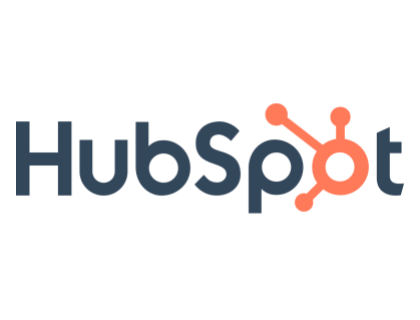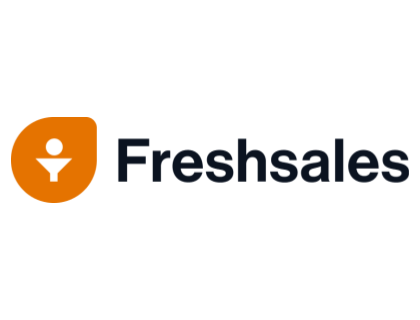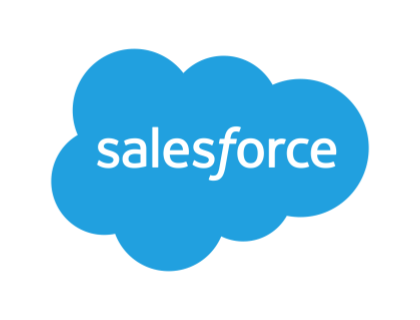Best CRM Software with Pricing
Review with ratings and pricing for best small business CRM software. Includes 39 CRM platforms, with answers to common questions.
Updated on December 21st, 2023
The SMB Guide is reader-supported. When you buy through links on our site, we may earn an affiliate commission. Learn more
- Automatically logs activity.
- See contact info in one place.
- Big 3rd party app marketplace.
- Advanced features.
A CRM platform, or customer relationship management software, takes all the data generated about a customer across an organization and gathers it into a single piece of highly organized software that is available to any device connected to the internet.
It can be the single most important piece of software for a business. Our CRM software review was created to help you make the important decision on which is the best CRM software for your small business.
Updates:
Updated 5th of October 2022
We updated the pricing for all CRM software.
Sales Strategies
Learn more about creating and implementing sales strategies. Includes a free sales strategy template and examples of each strategy.
Feb 2, 2023
Why We Chose Hubspot, Freshsales, and Salesforce:
HubSpot includes most standard CRM features, plus an extensive array of less common ones. Noteworthy mentions include the company insights tool, which competitors lack, plus advertisement management, website traffic analysis, and email scheduling functions.
Accessibility is another major factor. Hubspot offers a generously featured free plan that can be used by all businesses, regardless of their team size. Though lacking some of the high-end functions offered by their paid plans, smaller businesses may find that the free package provides ample resources to manage their customer relations.
Freshsales is next on our list as it is a comprehensive CRM platform with a host of useful features. Some of its key features include AI-driven lead scoring, activity capturing tools, and integrations with software like Google Calendar, MailChimp, and Office 365. Freshsales has an extensive pricing range that starts at $180.00 per year, with the most costly starting at $828.00 per year.
Salesforce is third on our list as it is an excellent CRM platform that offers the most customization options. Salesforce can be used for marketing, e-commerce, and sales, offering a powerful range of features with a gentle learning curve. Salesforce offers plenty of price points, making it accessible to a number of different business sizes. The cheapest plan is €25.00 per month (up to 10 users) while the most expensive is €300.00 per user per month.
Be sure to view our list of free CRM solutions for details about software that won't break the bank. For more information about maximizing the efficiency of your business's processes, consult our list of the best ERP software.
Best Free CRM Software
Compare top free CRMs including Hubspot, Bitrix 24, SutiCRM, ngDesk, and more. See details of free offers, learn about features, and see customer opinions.
Dec 21, 2023
Our Value for Money Chart below offers a bird's-eye view of the CRM landscape, pitting product price against rating for easy comparison. The size of each bubble indicates the number of customers.
Key Feature Comparison:
Key CRM Feature | HubSpot | Freshsales | Salesforce |
|---|---|---|---|
Email Marketing | Yes | Yes | Yes |
Analytics | No | Yes | Offers paid add-on Einstein Analytics |
Customization | Yes | Yes | Yes |
Scalability | No | Yes | Yes |
Key Integrations | Yes | Yes | Yes |
Mobile Support | Yes | Yes | Yes |
Social Media Integrations | Yes | Yes | Yes |
Things to Consider When Evaluating CRM Software:
- CRM software is best utilized when integrated with emailing, HR, accounting, and similar platforms. Inquire about third-party integrations before settling on a CRM solution.
- Your chosen software should be able to accommodate business-related developments. Avoid non-scalable solutions, as well as contracts that make it difficult to upgrade your CRM package within a reasonable timeframe.
- CRM software houses sensitive information, so data breaches can tarnish both the reputation and financial standing of your business. Be sure that your preferred CRM is a secure one.
Best Email Marketing Services for Small Businesses
The best email marketing services and software ranked. Also includes pricing information for the top email marketing platforms.
Nov 29, 2023
Best CRM Software for Small Business:
Rank | Name | Offer | Review | Learn More |
|---|---|---|---|---|
1. | Free. | Feature-dense with a generous free plan but lacking some common CRM functions. | ||
2. | Free and paid options. | Extensive integration opportunities plus excellent features, including powerful emailing capabilities. | ||
3. | From $25.00 /user /mo. | Advanced features, easy to customize. | ||
4. | From $65.00 /user /mo. | Intuitive with ample customization options, though data importing is sometimes problematic. | ||
5. | Free and paid options. | Offers many useful features and integrations, but the free plan is fairly limited. | ||
6. | From $10.00 /user /mo. | Integrates with G Suite and Office 365 but lacks reporting dashboards and isn't optimized for mobile use. | ||
7. | Free and paid options. | Intuitive with helpful third-party integrations, but lacking some standard capabilities. | ||
8. | Free and paid options. | User-friendly option that integrates well, but free plan lacks certain marketing automation features. | ||
9. | From $18.00 /user /mo. | User-friendly with a great customer support team, but unilingual. | ||
10. | From $3.00 /user /mo. | Easy to use. | ||
11. | From $15.00 /user /mo. | Integrates well and offers generous storage, although the mobile app lacks email capabilities. | ||
12. | Free and paid options. | CRM features comprise one aspect of this software, which may explain why they're somewhat limited. | ||
13. | From $29.00 /user /mo. | Intuitive task management features but difficult to sync with Outlook and iCal calendars. | ||
14. | From $30.00 /mo. | Well-oiled tracking and order processing features, but no mobile app. | ||
15. | From $42.00 /user /mo. | User-friendly software backed by good customer service, although documentation may be tricky to navigate. | ||
16. | From $19.00 /mo. | Many opportunities for customization, but the reporting tool could be improved. | ||
17. | From $45.00 /mo. | Cloud-based software that makes data management a breeze, but the campaign tool needs work. | ||
18. | From $40.00 /mo. | Easy setup with many opportunities for customization, but lacks 24/7 customer service. | ||
19. | Free and paid options. | Integrates well and offers excellent marketing automation, but lacks text messaging capabilities. | ||
20. | From $25.00 /user /mo. | Excellent service quality assessment features, although the basic plan lacks phone support. | ||
21. | Contact for quote. | User-friendly with a handy note function, but fairly expensive. | ||
22. | Contact for quote. | Feature-dense and easy to use, but some features are tough to find. | ||
23. | Free. | Completely free but lacking many key features that are offered by top-ranking, free CRM software. | ||
24. | Free and paid options. | Offers standard features plus the ability to import/export data, but lacks a mobile app. | ||
25. | From $18.00 /user /mo. | Tons of advanced capabilities and helpful integrations, but inventory management features are reserved for the Professional plan. | ||
26. | From $17.00 /mo. | Great tracking and reporting capabilities, but cannot integrate with Salesforce, Dropbox, or Google Drive. | ||
27. | From $25.00 /mo. | Highly customizable and integrates with QuickBooks but doesn't integrate with VoIP. | ||
28. | From $29.00 /user /mo. | Great integration capabilities but users can't import/export data. | ||
29. | Contact for quote. | User-friendly and backed by responsive customer support, but presents a notable learning curve. | ||
30. | From $30.00 /user /mo. | Solid option with an intuitive interface, but many features could be improved. | ||
31. | From $49.00 /user /mo. | Readily customizable option that integrates well, but significantly more expensive than competitors. | ||
32. | From $199.00 /mo. | Great automation and tracking features, but missing some useful integrations. | ||
33. | Free and paid options. | User-friendly software equipped with basic features, but lacks offline functionality. | ||
34. | Contact for quote. | Excellent tracking, reporting, and forecasting features, but lacks multi-currency support. | ||
35. | From $70.00 /user /mo. | Integrates well and offers excellent reporting features, but only offers two license options. | ||
36. | From $99.00 /mo. | Cost-effective option backed by great customer service, but not the most user-friendly software. | ||
37. | From $20.00 /user /mo. | Straightforward data entry processes, although it can be challenging to set up. | ||
38. | Free and paid options. | Includes useful features that facilitate effective data management, but can get pricey. | ||
39. | Contact for quote. | Facilitates effective pipeline management but could benefit from additional integrations and an interface upgrade. |
Pros and Cons:
Pros
- Offers a comprehensive and centralized dashboard for an easy customer overview.
- Automates the data entry process.
- Facilitates easy and effective team collaboration.
- Scales at ease.
- Offers data mining tools.
Cons
- Too much automation can minimize the key human element of sales, or demean the customer "relationship."
- Potential for security breaches, making customer data vulnerable to theft.
- Often requires technical support, usually at extra cost.
- Not all CRM platforms have a gentle learning curve. Staff might need to undergo training.
ERP Software
Get pricing and average customer ratings for top ERP Software Platforms. Includes info on ERP for small businesses and answers to FAQs.
Dec 21, 2023
HubSpot CRM vs. Freshsales Growth vs. Salesforce Essentials:
HubSpot's CRM platform offers all the features you would expect from a top-tier CRM at no cost at all. Their free CRM strategy is used as a gateway to integrating their paid products, such as their Marketing Hub, Sales Hub, Service Hub, and Growth Suite, so while you won't pay for their CRM, you will end up paying for the rest of their product suite.
Their CRM platform competes with Freshsales and Salesforce for features across all price points, so it is more useful to pit their rivals against each other in a package comparison. See the Key Feature Comparison for a full appraisal.
Freshales' Growth and Salesforce's Essentials plans have a similar feature range. They both offer basic tools for lead and contact management, email integration, mobile support, and more. Salesforce Essentials offers configurable reports and dashboards, while Freshsales Growth does not, and Freshsales Growth offers API access; a feature missing from Salesforce.
Freshsales Growth is the cheaper option, priced at $18.00 per month and $180.00 per year, while Salesforce Essentials costs €25.00 per month without an annual option. Salesforce Essentials is capped at 10 users.
HubSpot CRM vs. Freshsales Growth vs. Salesforce Essentials Comparison:
Offer | HubSpot CRM | Freshsales Growth | Salesforce Essentials |
|---|---|---|---|
Pricing | Free. | $18.00 /mo. and $180.00/yr. | €25.00/mo |
Users | Unlimited | NA | 10 |
Reporting and Analytics | Yes | No | No |
Customization | Yes | No | No |
Social Media Integrations | Yes | No | No |
Mobile Support | Yes | Yes | Yes |
Lead and Contact Management | Yes | Yes | Yes |
Teamwork and Collaboration | Yes | No | Yes |
HubSpot CRM vs. Freshsales Pro vs. Salesforce Professional:
HubSpot's CRM platform offers all the features you would expect from a top-tier CRM at no cost at all, making a comparison with its competitors unfair. See the Key Feature Comparison for a full appraisal.
Freshsales Pro and Salesforce Professional are both intermediate CRM platforms that are ideal for medium sized businesses. Both platforms offer advanced CRM features, including sending bulk emails, faster team collaboration, and better sales forecasting ability, among others.
Freshsales bests its rival by offering advanced reporting tool with its Pro plan, affording users actionable insights on sales activity, lead conversions, revenue forecasts, and more. Another feature not present in Salesforce Professional is workflow automation to automate repetitive tasks. Salesforce users need to upgrade their plans to get those features.
Freshsales Pro is the cheaper of the two at $47.00 per month and $468.00 per year, while Salesforce Professional costs €75.00 per user per month without an annual payment option.
HubSpot CRM vs. Freshsales Pro vs. Salesforce Professional Comparison:
Offer | HubSpot CRM | Freshsales Pro | Salesforce Professional |
|---|---|---|---|
Pricing | Free | $47.00 /mo. and $468.00 /yr. | €75.00 per user per month |
Users | Unlimited | NA | Unlimited |
Email Cap | 2,000 per month. | 250 per user per day | NA |
Workflow Automation | Yes | Yes | No |
Advanced Reporting | Yes | Yes | No |
Google Apps Integration | Yes | Yes | Yes |
HubSpot CRM vs. Freshsales Enterprise vs. Salesforce Enterprise:
HubSpot's CRM platform offers all the features you would expect from a top-tier CRM at no cost at all, making a comparison with its competitors unfair. See the Key Feature Comparison for a full appraisal.
Freshsales Enterprise and Salesforce Enterprise constitute the high-end versions of their CRM platforms, and are suited to medium and large businesses. Both platforms offer plenty of functionality, including advanced customization, a comprehensive reports dashboard, unlimited roles and permissions, and other useful features.
A key feature missing from Salesforce Enterprise is social media integration for customer profile enrichment. This feature affords you a more detailed customer profile by merging social media data. Freshsales Enterprise also offers multi-currency support for managing global deals in different currencies, a feature missing from Salesforce Enterprise.
The pricing trend continues with Freshsales Enterprise being the cheaper option. Its costs $83.00 per month and $828.00 per year, while Salesforce Enterprise costs €150.00 per user per month without an annual plan.
HubSpot CRM vs. Freshsales Enterprise vs. Salesforce Enterprise Comparison:
Offer | HubSpot CRM | Freshsales Enterprise | Salesforce Enterprise |
|---|---|---|---|
Pricing | Free | $83.00 /mo. and $828.00 /yr. | €150.00 per user per month |
Users | Unlimited | NA | Unlimited |
Customization | Yes | Yes | Yes |
Reporting Dashboard | Yes | Yes | Yes |
Social Media Integration | Yes | Yes | No |
Unlimited Roles and Permissions | Yes | Yes | Yes |
HubSpot CRM vs. Freshsales Forest vs. Salesforce Unlimited:
HubSpot's CRM platform offers all the features you would expect from a top-tier CRM at no cost at all, making a comparison with its competitors unfair. See the Key Feature Comparison for a full appraisal.
Freshsales Forest and Salesforce Unlimited are, as the latter's name suggests, unlimited versions of their CRM platforms. They are plans suited to businesses who require an all-powerful, comprehensive CRM software to support their size and productivity. They boast features such as IP whitelisting, audit logs, and a dedicated account manager.
Each platform offers their own unique features. Freshsales Forest offers things like data hosting with the European Economic Area data center, while Salesforce Unlimited offers developer sandboxes for testing code without compromising your live deployment and 24/7 Support and Configuration Services.Freshsales Forest's pricing is unavailable, while Salesforce Unlimited charges €300.00 per user per month.
HubSpot CRM vs. Freshsales Forest vs. Salesforce Unlimited Comparison:
Offer | HubSpot CRM | Freshsales Forest | Salesforce Unlimited |
|---|---|---|---|
Pricing | Free | NA | €300.00 per user per month |
Users | Unlimited | NA | Unlimited |
IP whitelisting | No | Yes | No |
Developer Sandboxes | No | No | Yes |
24/7 Support and Configuration Services. | Yes | Yes | Yes |
CRM Platforms and Cyber Security:
The main benefit of CRMs - having all your customer info stored in one searchable place - is unfortunately what makes them a valuable target to hackers.
Information about your customers stored in a CRM is also the most potentially damaging to a business in the hands of hackers. This could expose your customers to things like identity theft, fraud, false billings, and third-party data sales, not to mention advanced threats to your own business, such as corporate espionage, lawsuits, and lasting damage to your business's reputation.
CRM Software companies Salesforce and Redtail are two high-profile cases of CRM data breaches that affected a number of important businesses. Some companies affected by CRM breaches Include:
Data breaches have been on the rise. In 2014, 12.7 million Americans fell victim to identity theft, according to a report by Javelin Strategy & Research.
How to Protect Your CRM Data:
- Employ a strict needs-based access system for CRM authorization, ensuring that employees who no longer need access to the software are automatically ejected.
- Use the most advanced encryption software and ensure that your security is always updated and aware of new threats.
- Add additional user authentication layers.
- Use range restrictions on cloud-based CRM software with IP addresses.
- Train your employees in data security best practices, including limiting access and usage, using individual login accounts instead of sharing, and limiting the number of employees who can download data.
- Set up security alerts to notify you of unauthorized access to the CRM platform.
- Google the CRM software’s name plus “data breach” or “hack” and read through any news before purchasing it to ensure that it’s a reliable platform.
- Get cybersecurity insurance. You should always assume the worst and cover your bases.
Security features to look for in CRM Software:
- Device regulation in offline mode for protection with mobile CRM usage.
- Customized data access to control authorization, even across designations and platforms.
- Browser app based CRM for protection with external browsers.
- Controlled data sharing for protection with sharing and copying customization options.
7 Ways to get the Most out of Your CRM Software:
1. Focus exclusively on improving sales.
CRM software is often conceived as a multi-purpose tool for achieving a host of business objectives, with everyone from Marketing, Sales, Finance, and company executives providing input on what they want from it. This detracts from the real purpose of using a CRM platform: improving sales.
A winning CRM strategy is one that focuses exclusively on maximizing sales, instead of having your CRM software do things like report on progress and improve forecast accuracy. If your sales team feels like they're not able to improve the sales process with their current CRM tool, it means that your CRM software is serving other departments, and offers no value to your sales team.
Choose a CRM software that gets the best out of your sales team. Factor only their needs when choosing a software, and grant them full autonomy over its function in the workplace. Help them sell better and watch your revenues grow.
2. Ensure that there is proper training.
Instruct your sales management to educate their teams on CRM usage, and to ensure that there is continuous improvement. See to it that sales management are teaching their teams to use customer data in their sales strategies in order to create more opportunities, and not to merely use it for reporting on activity, call volume, and other metrics. Give them a proper sales education.
3. Leverage the power of customer data.
CRM software has analytics tools that help you navigate an ocean of customer data. A good sales strategy involves analyzing customer data to establish customer purchasing histories and identify various trends and behaviors, so it might be useful to train your data scientists on how to use your CRM software to get the best out of it. Let customer data guide your sales and marketing strategies.
4. Integrate sales and marketing teams.
Your business makes more sales when your Marketing and Sales departments work together. Marketing identifies leads and sales hunt them down. Your CRM platform can take this alliance to the next level. When using the CRM platform collaboratively, your teams can identify more suitable business opportunities, develop a unique customer profile, and develop better marketing material, creating a more efficient sales strategy. Teach your Sales and Marketing departments how to use your CRM platform collaboratively.
5. Leverage the power of social media.
Combining customer data with their social data multiplies the value of your CRM software, allowing for a more effective sales strategy. Be sure to invest in a CRM platform that integrates social media data, and goes beyond responding to comments and monitoring mentions and interactions, to integrating social data into your sales strategy.
6. Ensure that customer data is regularly updated.
You cannot leverage customer data if the customer data is not accurate. See to it that customer data is updated regularly. A Sales and Marketing team that enjoys exclusive control over the CRM software will have the incentive to do so.
7. Integrate with other software like Accounting and VOIP.
Although integrating too many departments can be counter-productive, it is useful to combine certain kinds of data. Combining CRM software with accounting software merges customer data with financial data, creating a richer, more insightful customer report. Combining your CRM software with VOIP software (for making calls over the internet), means your sales team will have a comprehensive dashboard of relevant information to draw from while on the phone. Look for CRM software that offers these sorts of integrations.
FAQs:
What is the most popular CRM software?

What is the best CRM for small business?
How can I improve my CRM?
- Make sure it is accessible for all.
- Provide training on CRM software to all employees.
- Integrate with additional software to automate processes.
- Ensure that data is up to date.
- Mobilize.
How do I choose a CRM?
- Determine which features and functionality your business requires.
- Ensure that your CRM system integrates with other applications.
- Try out different applications before making your decision. Consider trying out different free trials.
What is the price range for a CRM system?
A CRM system for small business can cost between $0.00 and $150.00 per month or more, depending on the number of users you have and which features you need access to.
Is it essential to have a CRM for a small business?
It may be tempting to try to live without it, but there's a good chance that getting your customer data organized will help you make more money over time. On top of that, there are several free options, so there's no reason not to try it.
What are the top CRM systems for real estate agents?
How can I choose the best CRM for my small business?
The best small business CRM depends on what you need and what your budget is. Many of the top CRMs offer free trials. Sign up for a few of them, compare prices and ratings, and decide which is the best CRM software for your company's needs.

What are the best sales CRMs?
Should our company use cloud CRM software?
Probably. Unless you've got quite a bit of money to sink into an on-site system, and substantial customization needs that demand it, a cloud system is best for you. You won't have to worry about any of the maintenance, it's a lot cheaper, and your data will be accessible on any device, anywhere. Also, all the best CRM systems now offer cloud CRM software.
Are there affordable CRM systems for small business?
Yes. There are even totally free CRM systems, and several of the best CRM tools, according to CRM software reviews, cost below $30.00 per month.
What are the key features of top CRM software for small business?
The most important features of top CRM for small businesses include contact management, lead management, reporting, email tracking, social media management, a great CRM app, task management, reminders, calendars, and document storage. You'll want to be sure that the options you consider include most, if not all, of these features.
Which CRM software is best for developers?
We recommend SugarCRM for developers because the system is built for tech-savvy individuals. SugarCRM's developer-centric focus and vibrant set of features are just some of the highlights that developers will appreciate. In addition, this customizable solution offers numerous developer resources, such as learning guides, and technical documentation.
What are the five steps of the CRM process?
- Customer portfolio analysis.
- Customer intimacy.
- Network development.
- Value proposition development.
- Customer life cycle management.







